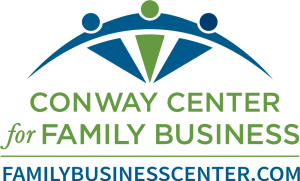At the October Monthly Educational Program: Should We Keep It or Sell It? A Family Business at a Crossroads Jon Eesley with Windsor Advisory Group sat down with Bill Mead, formerly of Golf Car Company, about his experience selling his family business. The discussion was open and impactful, with Bill Mead sharing personal details while Jon Eesley shared how he helps family businesses through the transition of selling. Here are a few things to consider when deciding whether or not to sell the family business.
Personal and Family Goals When Considering Selling
Family businesses are often a massive part of the family’s ecosystem. Family members can often be reliant on the business regarding future and career planning. Pay attention to the current family dynamics. Who is set to be the most hurt by the decision to sell and why? Whether due to financial or attachment-based reasoning, it is worth reflecting on the goals of every family member. So, what are the overall goals of the family business, or rather, what is its purpose in the eyes of each family member? The decision will have long-term impacts on family and personal goals, along with a broader impact on family and personal fulfillment. Proactive decision-making and aligning business goals with personal and family priorities are vital when deciding whether or not to sell. The effects of financial decisions on family harmony must be addressed before transactions occur.
Personal and Family Needs When Considering Selling
During the program, Jon Eesley and Bill Mead discussed a valuable question: how much do you need? When considering selling the business, it is crucial to have in mind not just why you might want to sell it but what you and your family need. What is the sale for, and where will the results of the sale be placed? Is it for retirement, to restart, or for the sake of a family member. Whatever the need, it is vital to ensure it has been identified and can be adequately resolved through the sale of the business. The family’s financial security must be considered when deciding whether to sell. Be sure to set clear expectations with family members and create room for emotional considerations when breaking down the decision to sell. Don’t forget to address why you need to sell and what your family needs.
Legacy and Impact
There is a personal sense of fulfillment in building and growing a family business. Legacy planning is often done with great pride. Sale can be the final step of that company’s legacy if you want it to be, or some owners will hold tight to the satisfaction that comes with maintaining ownership of what they’ve created. It is vital to remember that legacy is subjective, so thoughtful and proactive decision-making must be utilized sometimes, regardless of personal feelings. Personal satisfaction can be a great thing, but only when balanced with the financial aspects of running the business. Where does selling stand within the company’s strategic plan: has it always been a possible choice, or is the discussion only coming up for the first time now? Along with internal ideas of legacy, there is the external image of being a family business. The family factor can be an important selling point of your business in day-to-day commerce. Will the business maintain the same value and be able to run the same without that family business angle? The legacy and impact of the business as it stands must be considered when discussing whether to sell the family business.
The Business’s Future
External factors can repeatedly affect confidence in the business. Is the idea of selling only coming to mind out of fear? Are there alternative options that might feel safer for the family and the business? Has the company focus shifted from growth to ensuring the business’s stability, and why has that happened? As much as external economic factors can significantly affect the family business’s stability, it is essential to reflect on the internal choices of the family business. Factors like competition, regulatory requirements, and the need for technology investment can all make selling feel more desirable. The family needs to discuss whether they are equipped to tackle these different challenges without the need to sell. There is a difference between succession planning for managing and owning the business. It is important to plan for both. Family businesses must balance business decisions with family considerations and the importance of planning for succession. Sale can be an attribute of succession planning if that is what the company needs.
If you are interested in the next Monthly Educational Program, please join us on the third Thursday of every month! Click here to see more from our Family Business Insights.


